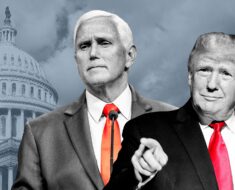Ride-sharing service Uber has been facing a number of legal setbacks over the past few months. Recently the company found itself banned from operating in London. As the company’s largest market in Europe, the loss of its license to operate within London proved to be a major blow to the company. London officials determined that Uber did not meet the same standards set out for cabs, subways, and other public transportation methods set out by the city’s governing transportation body, Transport for London. This week, the app giant is facing another legal battle, this time in their second largest market: Brazil.
The legal fight against Uber in Brazil began with a bill that would introduce new licensing requirements. While an innocuous measure on its own, Uber officials claim the bill runs essentially counter to their entire business model. The company has faced accusations in the past for failing to properly screen its drivers with thorough background checks, and Brazil’s new bill would have placed even more stringent requirements on licensing. So far, however, it seems that Uber is winning the fight for its right to operate in Brazil relatively unimpeded.
The country’s lawmakers added on a number of amendments to the potential bill that would dramatically reduce its efficacy. After the Senate’s alteration to the bill, it was promptly moved back to the House for further deliberation. Much of the public support for the measure’s original version comes from the country’s taxi unions, who rightly identify Uber as a significant competitor. These unions have participated in large-scale lobbying for the bill, which would place stricter regulations not just on Uber, but other apps that enable users to find rides.
For their part, Uber has led their own lobbying campaign and based off the Senate’s steps to neuter several aspects of the bill, it seems to be working. Dara Khosrowshahi, Uber’s current CEO, punctuated the effort by actually traveling to the country ahead of the Senate deliberations. Uber drivers within the country found their own way to support the bill as well. Thousands of drivers took to the streets to protest the original version of the bill, blocking roads throughout São Paulo, the country’s main financial center, and Brasília, the nation’s capital city. Uber also invested in prime-time ads on several of the country’s leading television stations, and the combined effort between Uber’s corporate staff along with Brazilian drivers seems poised to succeed.
Dil Bole Oberoi





